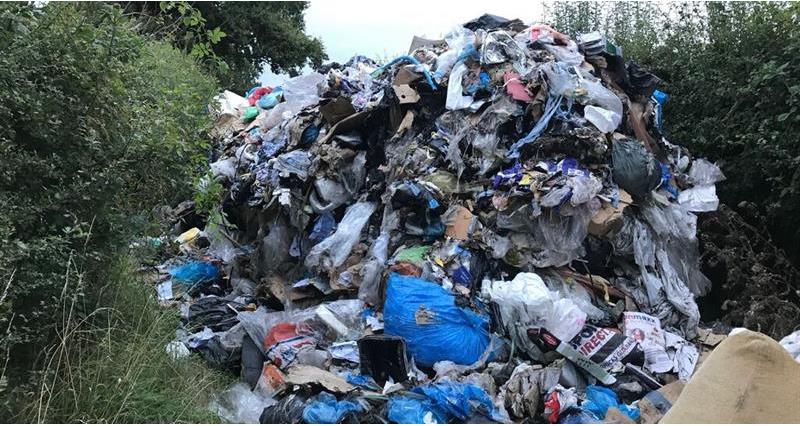In June 2022, we provided a written response to the PAC (Public Accounts Committee) inquiry on government actions to combat waste crime, asking for consistency across the whole country.Â
In its report, the PAC supports a number of our asks on waste crime and, particularly, fly-tipping. Get the full report and information about the inquiry at:
Our response highlighted that official data does not capture the true scale and impact of waste crime. We also addressed the lack of planning around government initiatives to improve data capturing. The PAC report outlines how Defra and the EA (Environment Agency) need to find a solution to data weaknesses and ensure initiatives are successfully delivered.
We also called for more effective sanctions to deter people from committing acts of waste crime. The PAC report recommends that relevant agencies work together to improve law enforcement, including consideration of stronger sentencing guidelines.
NFU Vice President David Exwood said: “Farmers are very often the victims of waste crime which is not only costly and time-consuming to remove, but can prove dangerous to human health, wildlife and livestock and in some cases pollute watercourses and contaminate land.
“It continues to take a huge toll financially on farming businesses and impacts on emotional and mental health and affects farmers’ ability to produce food and care for the environment.

“We are pleased that the PAC supports our calls for better reporting and recording of the range of waste crime incidents, and the need for effective punishments that deter criminals dumping waste illegally.”
NFU Vice President David Exwood
“We are pleased that the Public Accounts Committee has listened carefully to our evidence, particularly around fly-tipping, and in its report supports our calls for better reporting and recording of the range of waste crime incidents, and the need for effective punishments that deter criminals dumping waste illegally.
“The report also highlights another of our key asks; that improving user experience and willingness to report waste crime requires fundamental change, and that a single reporting mechanism is needed to reduce frustration and confusion.
“»ĘĽŇ»ŞČËurges the government and its agencies to recognise the serious impacts waste crime is having on farm businesses and the wider rural community, make it a priority issue and fully commit to tackling it.”
NFU members can read the NFU's full response to the inquiry: NFU response to PAC call for evidence – government actions into waste crime
Many forms of illegal waste
“The report highlights another of our key asks; that willingness to report waste crime requires fundamental change.”
NFU Vice President David Exwood
Farmers and land managers are often the victims of waste crime. The scale of the incidents can differ, and these crimes can take many forms including fly-tipping, the illegal dumping of waste, the illegal storage of waste and the mis-describing wastes under the guise of landspreading for agronomic benefit. Â
Not only can waste crime be costly and time-consuming to remove, but it can also be dangerous to human health, wildlife and livestock and in some cases pollute watercourses and contaminate land. Â
This is affecting farmers working hard to produce food and care for the environment but it is also taking a huge toll financially and has an impact on emotional and mental health.
NFU response
We responded to the call for evidence in June, with the following asks of government:
- A much better understanding of the extent and impact of waste crime. Better reporting and recording of the range of waste crime incidents on private land, including on agricultural land, is urgently needed.
- Effective punishments that deter criminals dumping waste illegally. We are calling on government to help develop further guidance to ensure those with prosecution powers are able to deliver effective punishments.
- A single reporting mechanism to be developed so that farmers/land managers only have to report a fly-tipping incident once. Currently victims may have to report incidents to multiple authorities, which is time-consuming, often confusing and frustrating.
- Government and the waste sector to raise awareness about the Householder Duty of Care. Householders need to be made more aware that responsibility for any of their waste is maintained through to its final disposal point – not when they pass it to a third party.
- All parties (local authorities/police/land managers/the Environment Agency) to work together on this issue including prevention, clean up and prosecution. In some areas this relationship works well. However, we want consistency in approach across the whole country.
